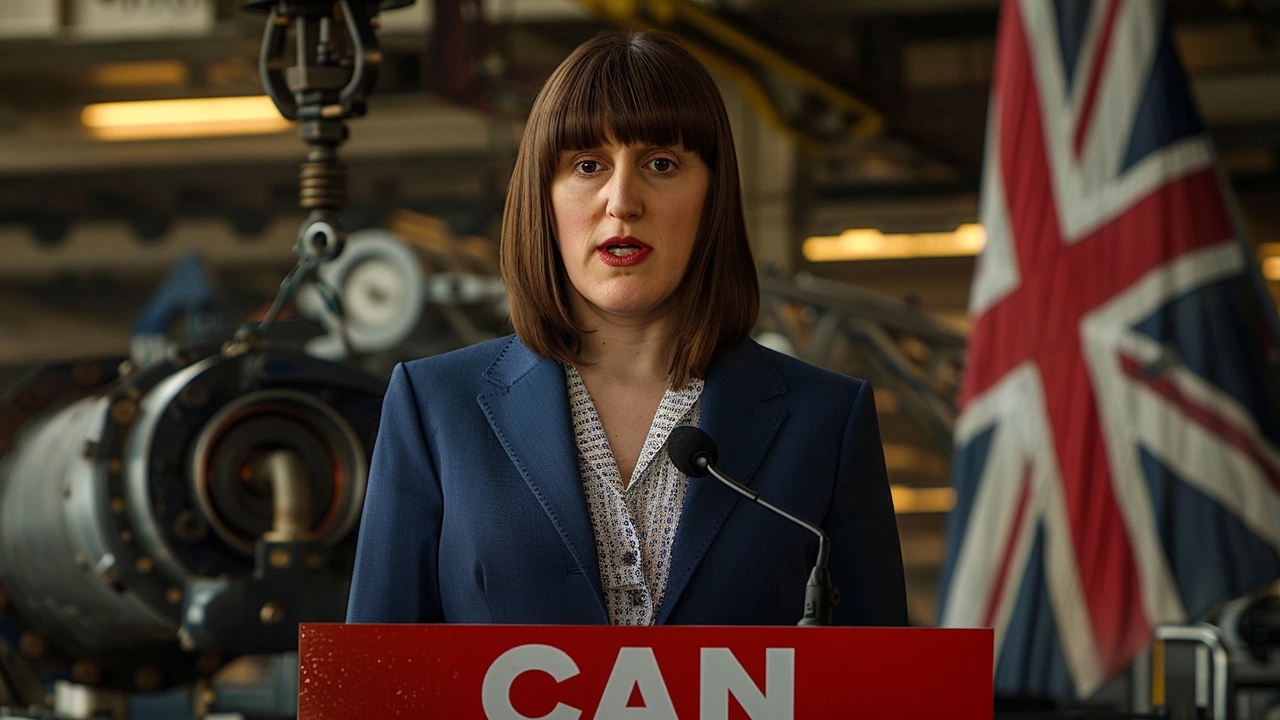Rachel Reeves Assures No New Tax Increases for Labour’s Spending Plans
29 May, 2024Rachel Reeves Vows No New Taxes To Fund Labour's Vision
In a definitive stance during her introductory speech in the election campaign, Rachel Reeves, the Labour shadow chancellor, pledged that a Labour government would not require any additional tax increases, apart from the ones already outlined, to fulfill its promises. With her remarks, Reeves sought to set a clear difference in fiscal policy and project an image of a responsible and trustworthy economic plan that is both fully funded and prudentially managed.
Commitments Without Tax Hikes
The Labour party’s goals are ambitious, underscoring a strong commitment to public service and growth. The plans encompass the introduction of 40,000 new weekly NHS appointments and the employment of thousands more teachers. These steps, they insist, are entirely accounted for within their fiscal framework and do not necessitate further taxation. The party’s claims of fully-funded proposals aim to dispel public fears of potential hidden costs or future financial burdens.
Reeves’ commitment to avoiding new tax rises has been coupled with a promise to foster better conditions for businesses. She accentuated that Labour’s economic blueprint is not only practical but also pro-business. This is a significant repositioning for Labour, a party not traditionally viewed as business-friendly. The endorsements from a slew of business leaders reflect this transformation.
Endorsements from the Business Community
A letter published in The Times showcased the support of 121 business leaders for Labour’s economic strategy. This cohort included well-known names like chef Tom Kerridge and Wikipedia founder Jimmy Wales, among other influential figures. These endorsements bring a sense of validation and credibility, signaling a growing confidence in Labour’s vision from within the business community. The signatories applauded Labour’s approach amidst what they described as an unstable and stagnant economic environment.
Reeves highlighted that such backing underscores Labour's current standing as a partner in business growth and enterprise. This backing from the entrepreneurial sector is particularly significant for Labour, traditionally positioned on the left wing of the economic spectrum. The shift indicates a substantive alteration in the policy approach that seeks to marry social welfare goals with robust economic growth strategies.
Government’s Counterarguments
Prime Minister Rishi Sunak has, however, countered Labour’s proposals with a stark critique. Referencing calculations provided by Treasury officials, Sunak warned that Labour's promises would result in an additional financial burden of £2,000 per year on every working family. This argument taps into public concerns about the economic feasibility and hidden costs of ambitious fiscal plans.
Mel Stride, the work and pensions secretary, added to the skepticism by questioning the authenticity of the endorsements. Stride pointed out that none of the CEOs from the UK’s top FTSE 100 companies were among the signatories. This observation aims to cast doubt on the representativeness of the business leaders who have backed Labour’s policies, suggesting that significant parts of the business world may remain unconvinced.
Labour’s Economic Repositioning
Labour’s transformation into a party that appeals to both business leaders and traditional working-class voters is a key narrative in this election campaign. Their current economic plan embodies a deliberate pivot designed to reassure both segments of the electorate. It reflects a dual focus on progressive social policies and capitalist principles of growth and enterprise.
The party’s assurance of no new taxes aims to mitigate any fears among middle-income voters, who often bear the brunt of tax policies. Labour’s strategy involves leveraging existing resources more effectively, cracking down on tax evasion, and implementing well-planned redistribution mechanisms to fund their social programs.
This strategic outlook is pitched not just at improving public services but also at raising the overall quality of life. By promising increased NHS appointments, Labour is addressing the critical issue of healthcare accessibility, a concern for many citizens. Simultaneously, by pledging more educators, they are investing in the nation’s future by prioritizing education.
A Crossroads for Voters
As the election campaign progresses, voters are presented with starkly different approaches to economic management from the incumbent government and the opposition. While the government emphasizes caution and the potential economic risks of Labour's proposals, Labour offers a vision of transformative change and investment in public services.
This election thus becomes a referendum on economic philosophies. Will voters lean towards Labour’s promising an ambitious, albeit contentious, approach without new tax rises? Or will they favor the caution advocated by the current government, wary of any potential financial backlash?
The few months leading up to the election will likely see more intense scrutiny of these economic plans. Voters must weigh their options, considering both the optimistic projections painted by Labour and the cautionary tales told by the incumbent administration. Indeed, the dynamic between these contrasting economic visions forms the crux of this political contest.
As Labour continues to push its agenda, emphasizing fiscal responsibility while promising significant public investments, the role of endorsements, critiques, and expert analyses will be essential in shaping public opinion. The very future of Britain’s economic and social landscape hangs in the balance.

 by
by